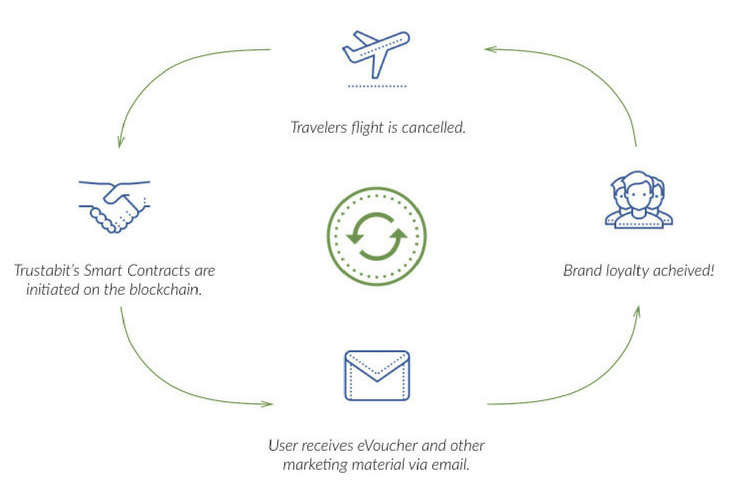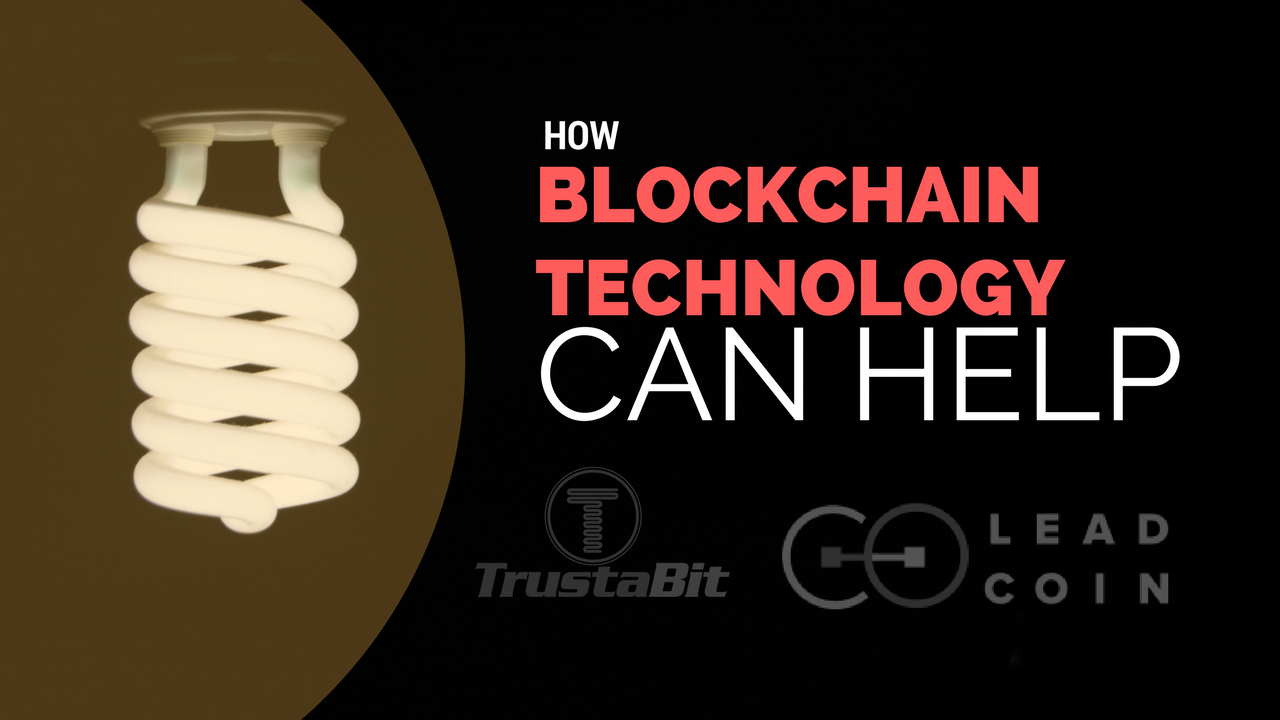- Smart contract-based business are bringing blockchain tech to the masses
- TrustaBit allows airlines to automatically issue travel vouchers to passengers, while LeadCoin gives businesses a new way to find customers and exchange leads
- Both businesses are building awareness of the benefits of smart contracts
Blockchain is the technology buzzword du jour. It powers the world’s cryptocurrencies by providing a novel and secure way to transfer and store transactional data – across a distributed network of nodes, instead of using a traditional central database.
Cryptocurrencies are just one way to use blockchain tech. Smart contracts are another fascinating and emerging application area. They provide a way for two independent sides to digitally negotiate and sign a contract, without the need for a third party to oversee that contract. They could even enforce a clean office kitchen.
We spoke to two smart contract-based businesses that are disrupting two different corporate areas: lead generation and business travel.
Flying High
TrustaBit is a software solution that allows airlines to automatically issue travel vouchers to passengers. For example, as soon as a flight is canceled, delayed or overbooked, TrustaBit will initiate automatic compensation to the passenger, according to the defined business rules (aka smart contracts). The best part is that this blockchain process is automated, so you don’t have to go through the laborious process of sending off tickets and filling in lengthy forms to claim a voucher.
TrustaBit is currently in the seed stage. Saritta Hines,founder and chief executive officer of TrustaBit, said: “While we cannot disclose any names, I can tell you that we are working hard to establish a strong network of strategic partnerships with airline industry leaders.”
Adoption and awareness are the company’s biggest challenges, according to Hines, who added: “Blockchain technology is still largely associated with Bitcoin and, as you may know, Bitcoin has received a good amount of bad press. As CEO of TrustaBit, it is my responsibility to make companies more aware of the benefits of the technology, as well as educate them on potential pitfalls and how to avoid them.”
“The internet is a great example. In the .com era, many assumed that the internet was filled with cat videos, spam sites and suspicious emails. This was half true. Indeed, there were nefarious sites, spam emails (and cat videos), but there were also many sites that provide invaluable services – things we could not imagine living without today. Now, we all know not to click on email links from users we do not know and do not use password1234 as our password!”
“The same can be said for blockchain technology. You should never share your private keys, you must be mindful of the transactions you are placing on a public blockchain and be wary of emails from users claiming to be ‘Binance Support’. While there are some inherent risks, the benefits of blockchain technology are far greater. Our challenge is, essentially, demystifying this relatively new technology,” Hines added.

Building Leads
LeadCoin a decentralised network for real-time lead sharing that allows businesses to sell their unused leads and buy hot leads from other businesses.
This is extremely relevant to small businesses, as LeadCoin’s founder, Shmulik Grizim, explained: “Every business is in need of new customers in order to fuel its growth. For this reason businesses have spent overall more than $200 billion to attract traffic to their websites in hope of finding new customers. However, less than 3% out of site visitors actually convert into paying customers. The remaining 97% of leads go unused and the marketing budget invested in attracting them is lost.”
“These numbers expose a systematic flaw in the current web marketing workflow. There’s a massive amount of potential customers who are actively seeking services or products, and that have clicked on a company’s Facebook or Google ad, reached their website and even registered, but couldn’t find a match for their required budget, schedule, geography, technical capabilities or any other preferences.”
“Using blockchain technology, LeadCoin offers a smart alternative to this workflow, powering real-time lead sharing while the lead is still ‘hot’ and in need of a service or a product. After receiving a lead’s consent to be approached by other providers, sellers upload their unused leads to the network instantly. All leads data is verified and qualified. LeadCoin’s matching algorithm then analyzes and matches leads to buyers. Leads who didn’t match one business, are now the perfect match for another,” he added.
Here’s an example of how real-time lead sharing works for small businesses. For instance, a potential customer contacts a videographer in order to shoot a wedding in Brooklyn. But this videographer is only works on the west coast. The videographer uploads the lead to LeadCoin and another videographer serving the east coast buys the lead and closes the deal. Or, in another case, a web agency rejects a customer that has a limited budget of $5,000 to create a website. However, the agency sells the lead to a freelancer that can match the offered budget and builds the site for the happy customer.
Following a private crowdsale of its utility token, LeadCoin just launched a public crowdsale, which started on 1 March 2018. The public sale will continue for 10 days and, when that closes, the company will begin developing the LeadCoin network, following the roadmap that’s laid out on its website and in a white paper.
Grizim explained what a utility token will do and the purpose of the crowdsale: “Every transaction on the LeadCoin network will be done using the LeadCoin Utility token, the LDC. Using the LDC tokens to exchange leads means that every token holder has an interest in the growth of LeadCoin, as it increases the value of the utility tokens. It also means that unlike launching web marketing campaigns with Facebook or Google where the business builds value for the third party platform, in LeadCoin participants in the network share the value of the network and the accumulated success.”
As with TrustaBit, Grizim sees building an understanding in the blockchain technology as a challenge to its business. But the main challenge for LeadCoin, according to Grizim, is lead quality.
“Businesses who are interested in buying leads need to know that these leads are indeed relevant to their business and not just lists of ‘dead leads’, or customers who needed something at some point in the past, but not anymore. Businesses need a smart, real-time system for automatic lead sharing while the lead is still ‘hot’ and in need of their service or a product. Blockchain technology is powering our solution and enabling us to provide the platform for real-time business to business transactions, with no middle man,” he added.

















